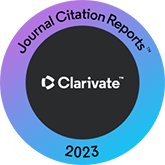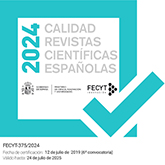Tinnitus from the perspective of a patient
DOI:
https://doi.org/10.3989/loquens.2018.055Keywords:
tinnitus, sound therapies, tinnitus research, tinnitus treatmentAbstract
I suffer from tinnitus since many years ago. I am one of millions with this rather incapacitating and adverse problem. In a similar way to many other patients, I reached the vast information existing in forums and websites, with an interest in analyzing, studying, and researching the subject of tinnitus. This allowed me to get insights into drugs ototoxicity, sound therapies, and counselling, as well as to implement tutorial videos. Thus, the main goal of this article is both to provide to other patients my own testimony as a tinnitus sufferer and to show to the tinnitus specialists the studies and research that have allowed me to suggest a musical neuromodulation therapy. Furthermore, a call to the therapeutic community is made about the necessity of implementing a common protocol of tinnitus treatment, both in primary and specialized care, with a special reference to the scientific community to continue researching on the mechanisms and future therapies of tinnitus.
Downloads
References
Cobo Parra, P. (2015). Tinnitus: Mechanisms, measures and sound treatments. Loquens, 2(2), e024. https://doi.org/10.3989/loquens.2015.024
Eggermont, J. J., y Roberts, L. E. (2004). The neuroscience of tinnitus. Trends in Neuroscience, 27, 676–682. https://doi.org/10.1016/j.tins.2004.08.010
Herráiz, C., Diges, I., Cobo, P., Aparicio, J. M., y Toledano, A. (2010). Auditory discrimination training for tinnitus treatment: The effect of different paradigms. European Archives of Oto-Rhyno-Laryngology, 267, 1067–1074. https://doi.org/10.1007/s00405-009-1182-6
Herráiz, C., Hernández Calvín, F. J., Plaza, G., Tapia, M. C., y de los Santos, G. (2001). Evaluación de la incapacidad en los pacientes con acúfenos. Acta Otorrinolaringológica Española, 52, 142–145. https://doi.org/10.1016/S0001-6519(01)78247-7
Jastreboff, P. J. (2007). Tinnitus retraining therapy. Progress in Brain Research, 166, 415–423. https://doi.org/10.1016/S0079-6123(07)66040-3
López González, M. A., Abrante Jiménez, A., y Esteban Ortega, F. (2010). Protocolos para acúfenos en Otorrinolaringología. Sevilla: Amplifon.
López González, M. A., López Fernández, R., y Esteban Ortega, F. (2006). Terapia sonora secuencial en acúfenos e hiperacusia. Editorial Premura, Sevilla.
Meikle, M. B., Henry, J. A., Griest, S. E., Steward, B. J., Abrams, H. B., McArdle, R. . . . Vernon, J. A. (2012). The tinnitus functional index: development of a new clinical measure for chronic intrusive tinnitus. Ear & Hearing, 33, 153–176. https://doi.org/10.1097/AUD.0b013e31822f67c0
Okamoto, H., Stracke, H., Stoll, W., y Pantev, C. (2009). Listening to tailor-made notched music reduces tinnitus loudness and tinnitus-related auditory cortex activity PNAS.
Roberts, L. E. (2007). Residual inhibition. Progress in Brain Resarch, 166, 487–495. https://doi.org/10.1016/S0079-6123(07)66047-6
Sáez-Jiménez, R., y Herráiz-Puchol, C. (2006). Acúfenos: Guía clínica en atención primaria. Archivos en Medicina Familiar, 8, 190–196.
Tass, P. A., y Popovych, O. V. (2012). Unlearning tinnitus-related cerebral synchrony with acoustic coordinated reset stimulation: Theoretical concept and modeling. Biological Cybernetics, 106, 27–36. https://doi.org/10.1007/s00422-012-0479-5
Van de Heyning, P., Meeus, O., Blaivie, C., Vermeire, K., Boudewyns, A., y De Ridder, D. (2007). Tinnitus: A multidisciplinary clinical approach. B-ENT, 3, 3–10.
Published
How to Cite
Issue
Section
License
Copyright (c) 2019 Consejo Superior de Investigaciones Científicas (CSIC)

This work is licensed under a Creative Commons Attribution 4.0 International License.
© CSIC. Manuscripts published in both the print and online versions of this journal are the property of the Consejo Superior de Investigaciones Científicas, and quoting this source is a requirement for any partial or full reproduction.
All contents of this electronic edition, except where otherwise noted, are distributed under a Creative Commons Attribution 4.0 International (CC BY 4.0) licence. You may read the basic information and the legal text of the licence. The indication of the CC BY 4.0 licence must be expressly stated in this way when necessary.
Self-archiving in repositories, personal webpages or similar, of any version other than the final version of the work produced by the publisher, is not allowed.














